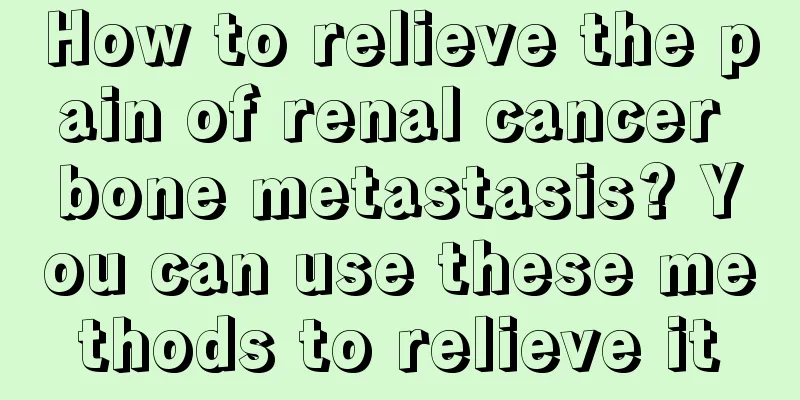Autonomic dysfunction

|
Many people's neurosis does not occur suddenly, but is caused by the gradual collapse of the spiritual world. Patients with mental illness are generally those who have experienced major stimulation or have been under high pressure for a long time. Qian Zhuang, who has neurosis, has autonomic dysfunction. He cannot control himself and his behavior is not under the control of consciousness. So what are the main manifestations of autonomic dysfunction? Symptoms appear to arise from a physical disorder of a system or organ that is primarily under autonomic control (cardiovascular, gastrointestinal, respiratory, and genitourinary systems). The autonomic nerves are also called vegetative nerves because they are not controlled by human will. The autonomic nervous system directly or indirectly regulates the functional activities of internal organs and maintains the balance of the internal and external environment of the body. Once the function is disturbed, it can lead to disorders in visceral functional activities. Main manifestations of autonomic dysfunction The autonomic nervous system, also known as the vegetative nervous system, is not controlled by human will and directly or indirectly regulates the functional activities of internal organs. When the autonomic nervous system is disturbed: (1) the respiratory system may experience changes in breathing depth and frequency; (2) the cardiovascular system may experience paroxysmal hypertension, periodic hypotension, sinus tachycardia or bradycardia, and manifestations similar to myocardial infarction; (3) the digestive system may experience gastrointestinal function and digestive juice secretion disorders; (4) the urinary system may experience frequent urination, urgency, difficulty urinating, and even urinary incontinence or urinary retention; (5) if the symptoms are paroxysmal, they may manifest as facial flushing, abnormal sweating, pupil dilation or constriction, tachycardia or bradycardia, drooling, chills, abdominal pain, etc. Other symptoms may also include sexual dysfunction and sleep disorders. Treatment of autonomic dysfunction (1) Drugs commonly used to adjust autonomic nervous function include 20-50 mg of oryzanol, 3 times a day. (2) For symptomatic treatment of palpitations, use propranolol and diazepam (Valium); for excessive sweating, use the Chinese patent medicine Yupingfeng Granules or Oyster Powder; for neurogenic frequent urination, use the Chinese patent medicine Suquan Pills or Sanjin Tablets; for gastrointestinal dysfunction, use vitamin B complex solution, pepsin or multi-enzyme tablets; those with sleep disorders can take diazepam (Valium) 5 mg or chlordiazepoxide 10 mg before bedtime; others can also use diazepam (Valium) 5 mg, 2 times/day; alprazolam 0.25 mg, 3 times/day; estazolam 1-2 mg, 2-3 times/day; iprafosine 0.15 g/day, for 7-30 consecutive days. |
<<: Sleep neurological disorder
>>: Cranial nerve function examination
Recommend
How to check the effectiveness of blocking antibodies
Blocking antibodies should be scientifically exam...
What are the advantages and disadvantages of skipping rope
Rope skipping is a sport, and accidents are inevi...
How about silicone spatula
The silicone pot spatula is very good. It will no...
What sequelae will be left after the removal of a pituitary tumor?
When it comes to pituitary tumors, I believe that...
What to eat to prevent primary liver cancer? Eating this fruit regularly can prevent primary liver cancer
Can eating fruits regularly prevent liver cancer?...
Bladder cancer staging standards and life expectancy
Bladder cancer is a very complicated disease. In ...
How to practice vocalization
We all know that when learning broadcasting and h...
How to remove the smell of smelly pork?
If pork is smelly, you can remove the odor by sca...
What is the treatment for advanced liver cancer? Three major treatment options for advanced liver cancer
Experts point out that the treatment of liver can...
The harm of toilet cleaner to human body
If there is a water outage in our toilet, you wil...
Can melanoma be cured
Melanoma is a tumor caused by melanocytes in the ...
Will eating potato chips make you fat?
Will eating potato chips make you fat? This quest...
Is it good to have a crescent on the nail
It is a common phenomenon to have a half-moon on ...
Five dietary taboos for uterine cancer
Uterine cancer is a common malignant tumor in wom...
When is the best time for pregnant women to supplement calcium, iron and zinc?
During pregnancy, especially in the middle and la...









